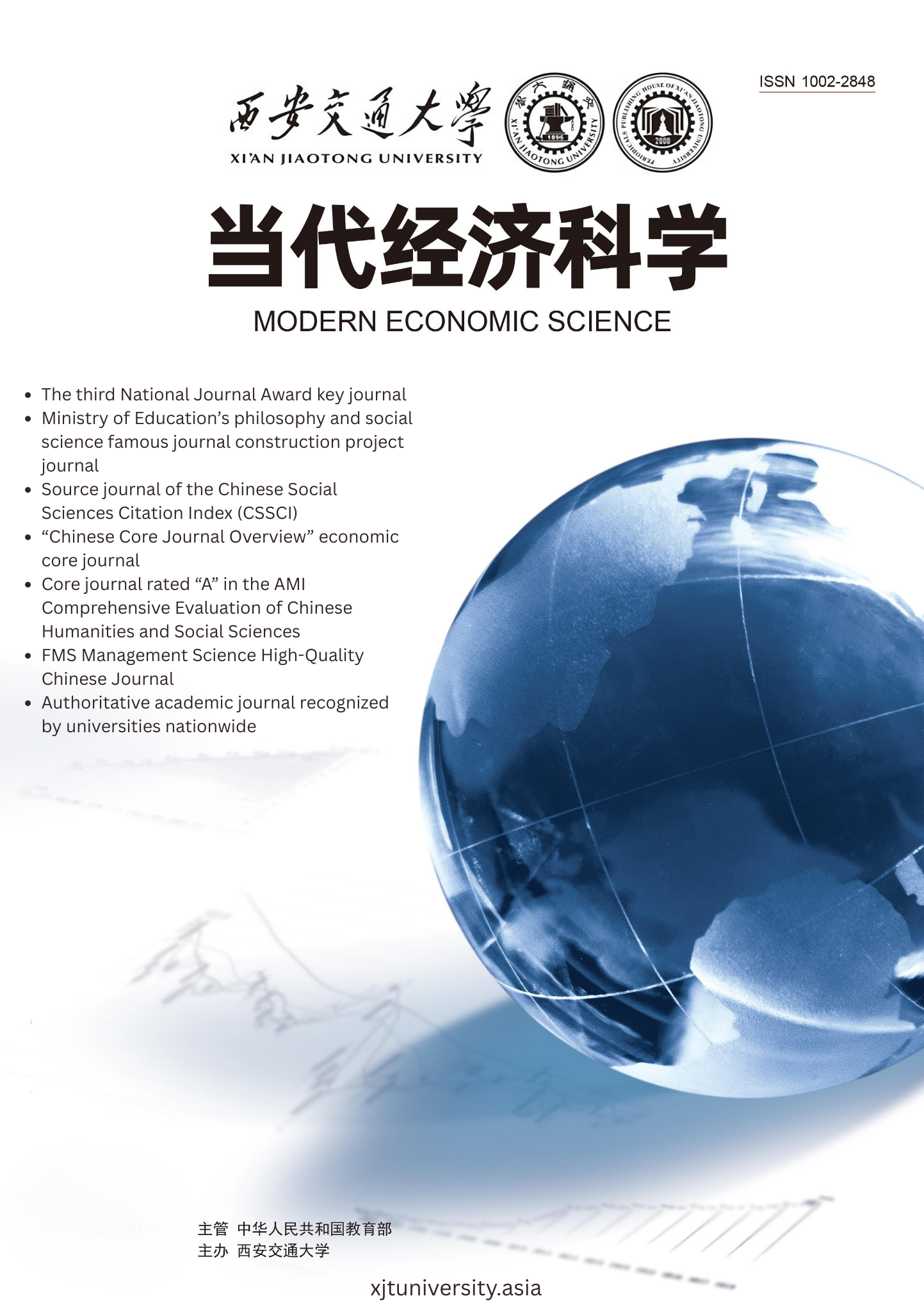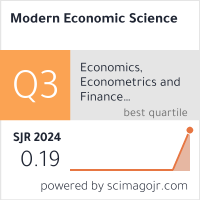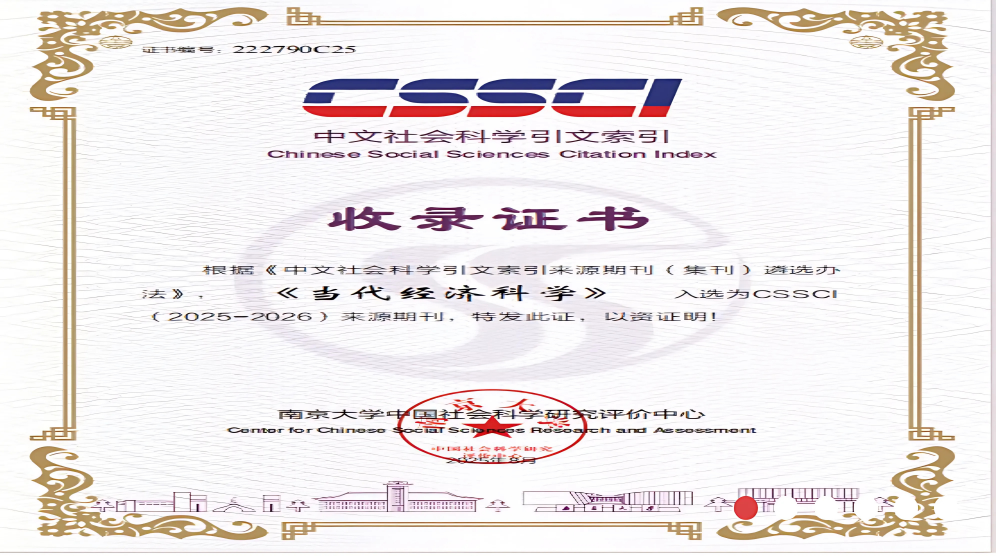How does Marketization of Data Elements Unleash Resource Dividends? An Examination from the Perspective of Trade Credit Financing
DOI:
https://doi.org/10.20069/f2fx9d17Keywords:
trade credit financing, data element marketization, information disclosure quality, financial technology, digital technology innovation, enterprise core business performanceAbstract
In the current era of flourishing digital economy, the marketization of data elements has become a core driver for promoting high-quality economic development. Traditional capital allocation focuses on tangible assets, with inherent limitations, while data element marketization has disrupted this model, reshaping capital allocation structures and profoundly impacting corporate financing and development pathways.
This study uses Chinese A-share listed companies from 2007 to 2023 as samples, covering multiple industries with broad representativeness. Using the establishment of data trading platforms as a quasi-natural experiment, this paper thoroughly examines the impact and mechanisms of data element marketization on corporate trade credit financing. In the research process, multiple rounds of data cleaning were conducted to ensure data quality. A difference-in-differences (DID) model was employed for regression analysis, and robustness tests were performed through methods such as variable substitution and placebo tests. The results indicate that data element marketization significantly increases corporate trade credit financing, with the conclusion remaining robust across various tests.
Further analysis reveals that information empowerment and innovation-driven development constitute the core mechanisms. Information empowerment enables enterprises to acquire and utilize information more efficiently, thereby enhancing their transparency and credibility in the trade credit financing market. Innovation-driven development encourages enterprises to explore new business models, products, and services, which in turn strengthens their market competitiveness and attractiveness for credit financing. Additionally, the quality of external information environment, level of economic development, and enterprise life cycle stage all significantly influence the relationship between data element marketization and trade credit financing. As data element marketization accelerates, enterprises show notable improvement in their core business performance.
This research makes significant contributions to the existing literature. First, unlike previous studies focusing on the impact of data element marketization on innovation capacity, green development, and industrial agglomeration, this paper approaches through trade credit financing. It explores resource dividends released at the enterprise level, revealing the critical role of data in the modern economic system. Second, it provides in-depth analysis of internal mechanisms through which data element marketization affects corporate trade credit financing. The study elaborates how data elements expand financing channels and optimize resource allocation. By examining the relationship between data element marketization and trade credit financing from three dimensions—external information environment, economic development level, and enterprise life cycle—it comprehensively analyzes the specific conditions under which these mechanisms operate, providing rich empirical scenarios and robust evidence for future research. Third, the findings offer actionable strategies for addressing corporate financing difficulties, promoting integration of digital technology with the real economy, and optimizing economic structure. These insights hold significant practical value and far-reaching implications for guiding corporate financing practices, improving the financing ecosystem, and fostering high-quality economic development. From the perspective of trade credit financing, this study extends the application scenarios where data elements empower enterprise growth and capital acquisition, contributing to deeper understanding of the role of data in modern business strategy and economic policy.
In conclusion, this study aims to reveal the critical role of data in the modern economic system by examining its impact on trade credit financing. Through rigorous empirical analysis and theoretical exploration, we have identified the key mechanisms and conditions through which data element marketization enhances corporate financing opportunities. This study underscores the importance of effectively utilizing data resources to promote sustainable growth and resilience in the digital economy.
Downloads
References
[1] 徐翔,赵墨非,李涛,等. 数据要素与企业创新:基于研发竞争的视角[J]. 经济研究,2023,58(2):39-56.
XU X,ZHAO M F,LI T,et al. Data factor and enterprise innovation:the perspective of R&D competition[J]. Economic Research Journal,2023,58(2):39-56.
[2] 刘培. 数据要素影响绿色生态效率的机制与效应研究[J]. 经济经纬,2023,40(6):136-148.
LIU P. Research on the mechanism and effects of data elements influencing green ecological efficiency[J]. Economic Survey,2023,40(6):136-148.
[3] 赵放,李文婷,马婉莹. 数据要素市场化能否促进数字产业集聚:来自准自然实验的证据[J]. 浙江学刊,2024,62(3):143-152.
ZHAO F,LI W T,MA W Y. Can marketization of data elements promote the agglomeration of digital industries:evidence from quasi-natural experiments[J]. Zhejiang Academic Journal,2024,62(3):143-152.
[4] 陈德球,梁媛,胡晴. 社会信任、家族控制权异质性与商业信用资本配置效率[J]. 当代经济科学,2014,36(5):18-28.
CHEN D Q,LIANG Y,HU Q. Social trust, heterogeneity of family control rights and the efficiency of commercial credit capital allocation[J]. Modern Economic Science,2014,36(5):18-28.
[5] 林洲钰,陈超红. 儒家文化对企业数字化转型的影响研究[J]. 当代经济科学,2024,46(5):105-117.
LIN Z Y,CHEN C H. Research on the impact of confucian culture on enterprise digital transformation[J]. Modern Economic Science,2024,46(5):105-117.
[6] 潘越,谢玉湘,宁博,等. 数智赋能、法治化营商环境建设与商业信用融资:来自“智慧法院”视角的经验证据[J]. 管理世界,2022,38(9):194-208.
PAN Y,XIE Y X,NING B,et al. Data-intelligence empowerment, law-based business environment and trade credit financing:evidence from “smart courts”[J]. Journal of Management World,2022,38(9):194-208.
[7] 徐小晶,徐小林. 财政补贴对企业商业信用融资的影响研究:基于新能源汽车补贴退坡政策的实证分析[J]. 南开管理评论,2021,24(3):213-226.
XU X J,XU X L. Research on the impact of fiscal subsidies on commercial credit financing of enterprises:an empirical analysis based on the subsidy reduction policy for new energy vehicles[J]. Nankai Business Review,2021,24(3):213-226.
[8] 方红星,楚有为. 公司战略与商业信用融资[J]. 南开管理评论,2019,22(5):142-154.
FANG H X,CHU Y W. Corporate strategy and trade credit financing[J]. Nankai Business Review,2019,22(5):142-154.
[9] WU L,HITT L,LOU B. Data analytics, innovation, and firm productivity[J]. Management Science,2020,66(5):2017-2039.
[10] 蔡跃洲,马文君. 数据要素对高质量发展影响与数据流动制约[J]. 数量经济技术经济研究,2021,38(3):64-83.
CAI Y Z,MA W J. The impact of data elements on high-quality development and the constraints of data flow[J]. Journal of Quantitative & Technical Economics,2021,38(3):64-83.
[11] 杨俊,李小明,黄守军. 大数据、技术进步与经济增长:大数据作为生产要素的一个内生增长理论[J]. 经济研究,2022,57(4):103-119.
YANG J,LI X M,HUANG S J. Big data, technological progress and economic growth:an endogenous growth theory of big data as a production factor[J]. Economic Research Journal,2022,57(4):103-119.
[12] 金骋路,陈荣达. 数据要素价值化及其衍生的金融属性:形成逻辑与未来挑战[J]. 数量经济技术经济研究,2022,39(7):69-89.
JIN C L,CHEN R D. Data valuations and its derived financial attributes:formation logic and future challenges[J]. Journal of Quantitative & Technological Economics,2022,39(7):69-89.
[13] 徐朝阳,白艳,王韡. 要素市场化改革与供需结构错配[J]. 经济研究,2020,55(2):20-35.
XU Z Y,BAI Y,WANG W. Factor marketization reform and mismatch of supply-demand structure[J]. Economic Research Journal,2020,55(2):20-35.
[14] 徐怀宁,田亚男. 户枢不蠹:数据要素市场化与审计质量[J]. 审计与经济研究,2025,40(3):29-38.
XU H N,TIAN Y N. The door hinge never gets worms:data factor marketization and audit quality[J]. Journal of Audit & Economics,2025,40(3):29-38.
[15] 陈晓佳,徐玮. 数据要素、交通基础设施与产业结构升级:基于量化空间一般均衡模型分析[J]. 管理世界,2024,40(4):78-98.
CHEN X J,XU W. Data factor, transportation infrastructure and industrial structure upgrade:an analysis based on quantitative spatial general equilibrium model[J]. Journal of Management World,2024,40(4):78-98.
[16] NGUYEN L,LEYVA-MAYORGA I,LEWIS A,et al. Modeling and analysis of data trading on blockchain-based market in IoT networks[J]. IEEE Internet of Things Journal,2021,8(8):6487-6497.
[17] GROVER V,CHIANG R,LIANG T,et al. Creating strategic business value from big data analytics:a research framework[J]. Journal of Management Information Systems,2018,35(2):388-423.
[18] 杨志强,张雨婷. 诉讼事件披露、企业风险与商业信用融资:基于信号传递理论的分析[J]. 财贸研究,2024,35(7):80-97.
YANG Z Q,ZHANG Y T. Litigation event disclosure, enterprise risk and commercial credit financing:an analysis based on signal transmission theory[J]. Finance and Trade Research,2024,35(7):80-97.
[19] 王仁祥,谢文君. 数据要素如何影响金融与科技耦合结构?[J]. 研究与发展管理,2024,36(5):26-38.
WANG R X,XIE W J. How do data elements affect the coupling structure of finance and technology?[J]. Research and Development Management,2024,36(5):26-38.
[20] 唐松,伍旭川,祝佳. 数字金融与企业技术创新:结构特征、机制识别与金融监管下的效应差异[J]. 管理世界,2020,36(5):52-66.
TANG S,WU X C,ZHU J. Digital finance and enterprise technology innovation:structural feature, mechanism identification and effect difference under financial supervision[J]. Journal of Management World,2020,36(5):52-66.
[21] 黄勃,李海彤,刘俊岐,等. 数字技术创新与中国企业高质量发展:来自企业数字专利的证据[J]. 经济研究,2023,58(3):97-115.
HUANG B,LI H T,LIU J Q,et al. Digital technology innovation and the high-quality development of Chinese enterprises:evidence from enterprise’s digital patents[J]. Economic Research Journal,2023,58(3):97-115.
[22] 孔艳芳,刘建旭,赵忠秀. 数据要素市场化配置研究:内涵解构、运行机理与实践路径[J]. 经济学家,2021,33(11):24-32.
KONG Y F,LIU J X,ZHAO Z X. Research on market-oriented allocation of data elements:connotation deconstruction, operation mechanism and practice path[J]. Economist,2021,33(11):24-32.
[23] 戴魁早,王思曼,黄姿. 数据交易平台建设如何影响企业全要素生产率[J]. 经济学动态,2023,64(12):58-75.
DAI K Z,WANG S M,HUANG Z. How the construction of data trading platform affects firms’ TFP?[J]. Economic Perspectives,2023,64(12):58-75.
[24] 李治国,王杰. 数字经济发展、数据要素配置与制造业生产率提升[J]. 经济学家,2021,33(10):41-50.
LI Z G,WANG J. Digital economy development, allocation of data elements and productivity growth in manufacturing[J]. Economist,2021,33(10):41-50.
[25] 佘楷文,申宇,赵绍阳. 大数据对银行信贷行为的影响:来自数字社会信用平台的证据[J]. 经济研究,2024,59(3):147-165.
SHE K W,SHEN Y,ZHAO S Y. Effect of big data on bank lending:evidence from digital social credit platform[J]. Economic Research Journal,2024,59(3):147-165.
[26] 李原,刘洋,李宝瑜. 数据资产核算若干理论问题辨析[J]. 统计研究,2022,39(9):19-28.
LI Y,LIU Y,LI B Y. Analysis of some theoretical problems on national data assets accounting[J]. Statistical Research,2022,39(9):19-28.
[27] KONG D,LIN C,WEI L,et al. Information accessibility and corporate innovation[J]. Management Science,2022,68(11):7837-7860.
[28] 赵忠涛,李长英. 专利质量如何影响了企业价值?[J]. 经济管理,2020,42(12):59-75.
ZHAO Z T,LI C Y. How does patent quality affect firm values?[J]. Business and Management Journal,2020,42(12):59-75.
Downloads
Published
Issue
Section
License
Copyright (c) 2025 Editorial Board of Modern Economic Science

This work is licensed under a Creative Commons Attribution-NonCommercial 4.0 International License.













